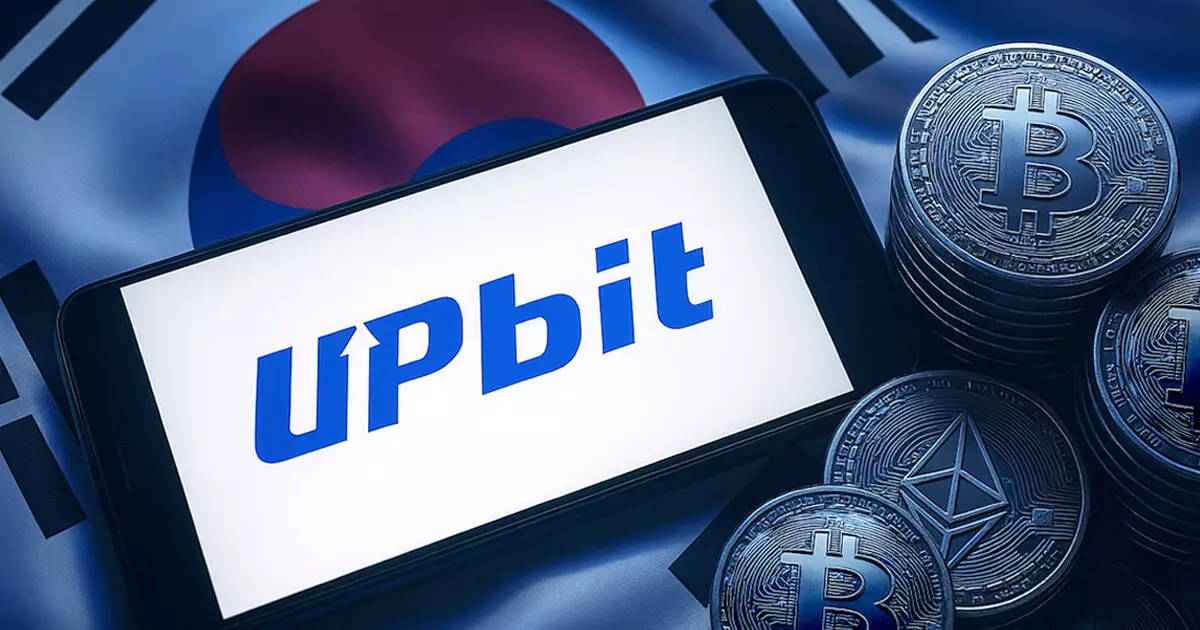Dunamu, the powerhouse behind UPbit—the largest cryptocurrency exchange in South Korea—has displayed financial resilience that is nothing short of extraordinary. In the face of stringent regulations and scrutiny from South Korean authorities, the company’s operating profit for 2024 skyrocketed by an astonishing 85.1%, hitting approximately $682 million. Such growth reveals not only the adaptability of Dunamu in a tumultuous market but also signals a burgeoning appetite for digital assets among investors. With a revenue consolidation jumping 70.5% year over year, this performance showcases the growing significance of cryptocurrency trading, particularly when influenced by macroeconomic factors such as Bitcoin’s halving event.
The Trump Effect and Market Dynamics
The financial uplift of Dunamu is intricately tied to the recent Bitcoin halving event, which reduced block rewards from 6.25 BTC to 3.125 BTC. This pivotal moment fueled a surge in trading activity, igniting interest among both retail and institutional investors. Moreover, the favorable political landscape brought about by the election of Donald Trump has inadvertently aided Dunamu’s ascent. As a pro-crypto figure, Trump’s administration has laid groundwork that favors the crypto market, ultimately leading to enhanced investor confidence and stability in a sector notorious for volatility.
The optimistically perceived policies enacted have attracted significant institutional players, further rejuvenating the burgeoning economy surrounding cryptocurrencies. With the Federal Reserve hinting at lower interest rates, global liquidity has swelled, pouring even more fuel onto the crypto fire. This combination of favorable policies and economic indicators has forged a conducive environment for Dunamu’s flourishing performance.
Regulatory Backlash and Legal Intricacies
However, amidst this economic success, Dunamu is far from free from threats. The Financial Intelligence Unit’s accusations of inadequate due diligence present a significant hurdle. The bar on accepting new customers and transferring assets, effective March 7, illustrates the precarious balance Dunamu must maintain between compliance and growth. Despite these challenges, the company has robustly disputed the regulatory decisions, underscoring that it has already undertaken necessary compliance measures to ensure user safety and transaction integrity.
The regional legal system seems to recognize the precariousness of the situation, as evidenced by a South Korean court’s decision to temporarily lift the ban on March 27. This ruling grants Dunamu crucial breathing space to contest the regulatory imposition in a courtroom setting, illustrating a reluctant acknowledgment of the complex dynamics at play between innovation in finance and regulatory oversight.
The Future of Dunamu and Crypto in South Korea
Dunamu’s fortitude in navigating these turbulent waters prompts speculation about the future landscape of cryptocurrency in South Korea. The clash between rapid innovation in digital assets and rigid regulatory frameworks raises pivotal questions about the direction of financial technology in the nation. Such outcomes could either lead to stricter protocols hampering growth or a more adaptive regulatory approach conducive to fostering a supportive environment for emerging industries.
Undoubtedly, Dunamu’s thrilling narrative of explosive growth, fortified by evolving market conditions and the interplay of socio-political factors, will shape the path forward for both the company and the larger crypto arena. As the paradigm of digital transactions continues to evolve, one can only anticipate whether South Korea will embrace this wave of innovation or cling to outdated frameworks that could stifle progress.
















Leave a Reply